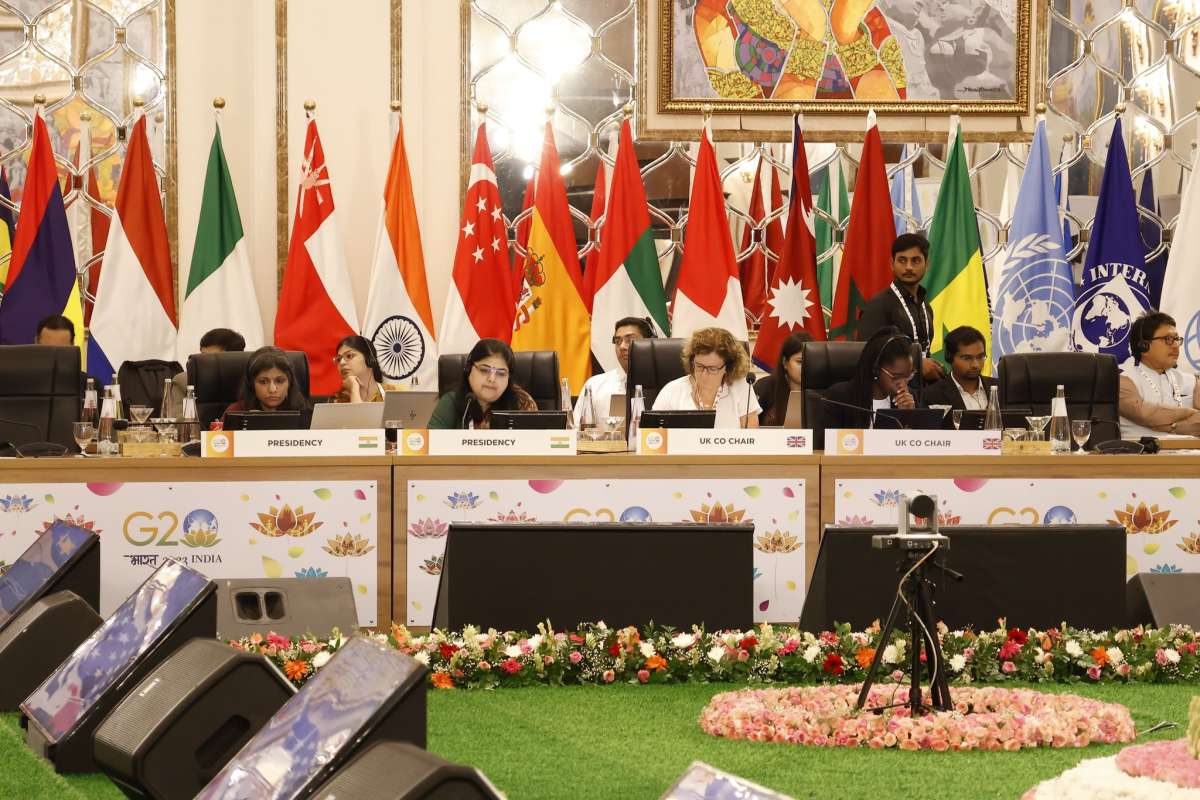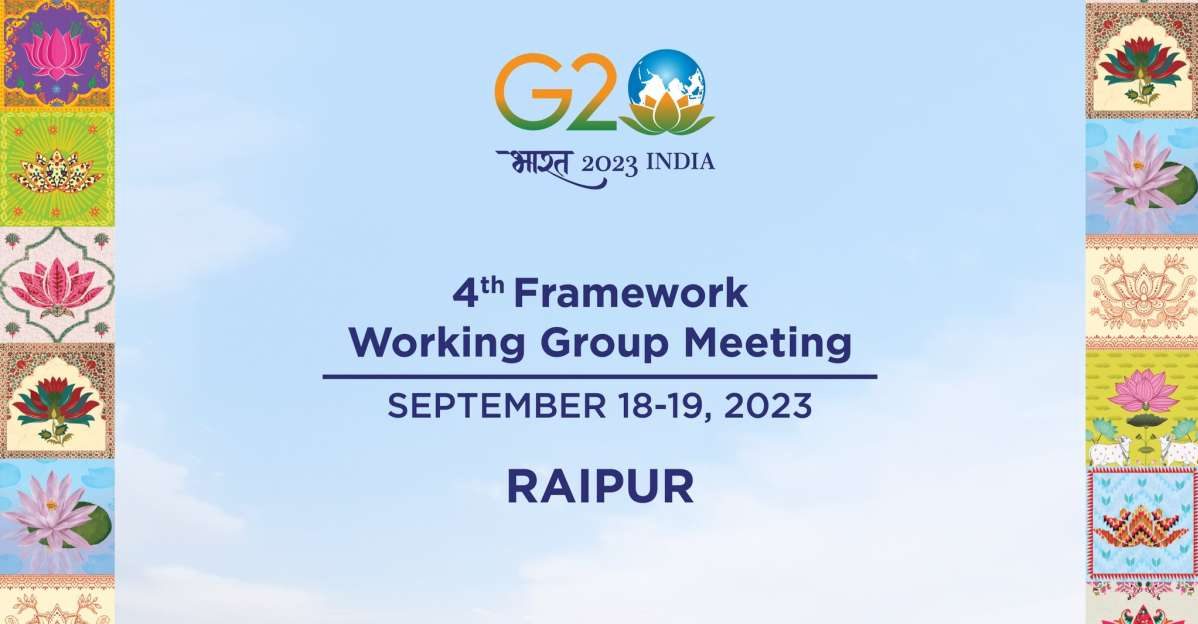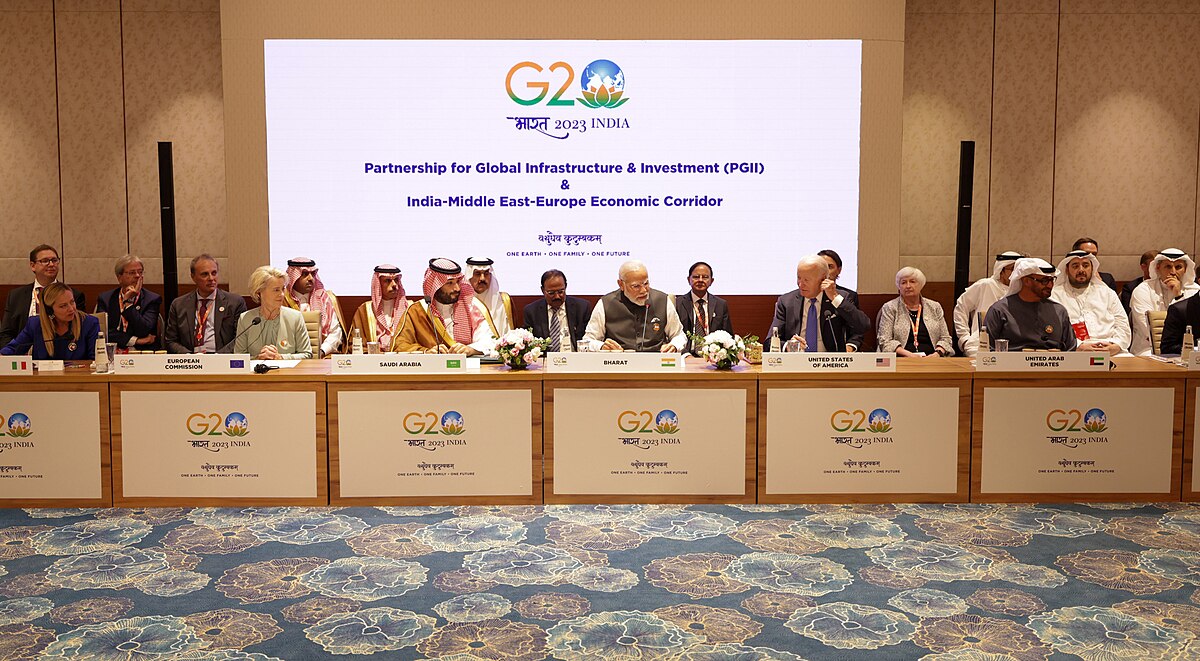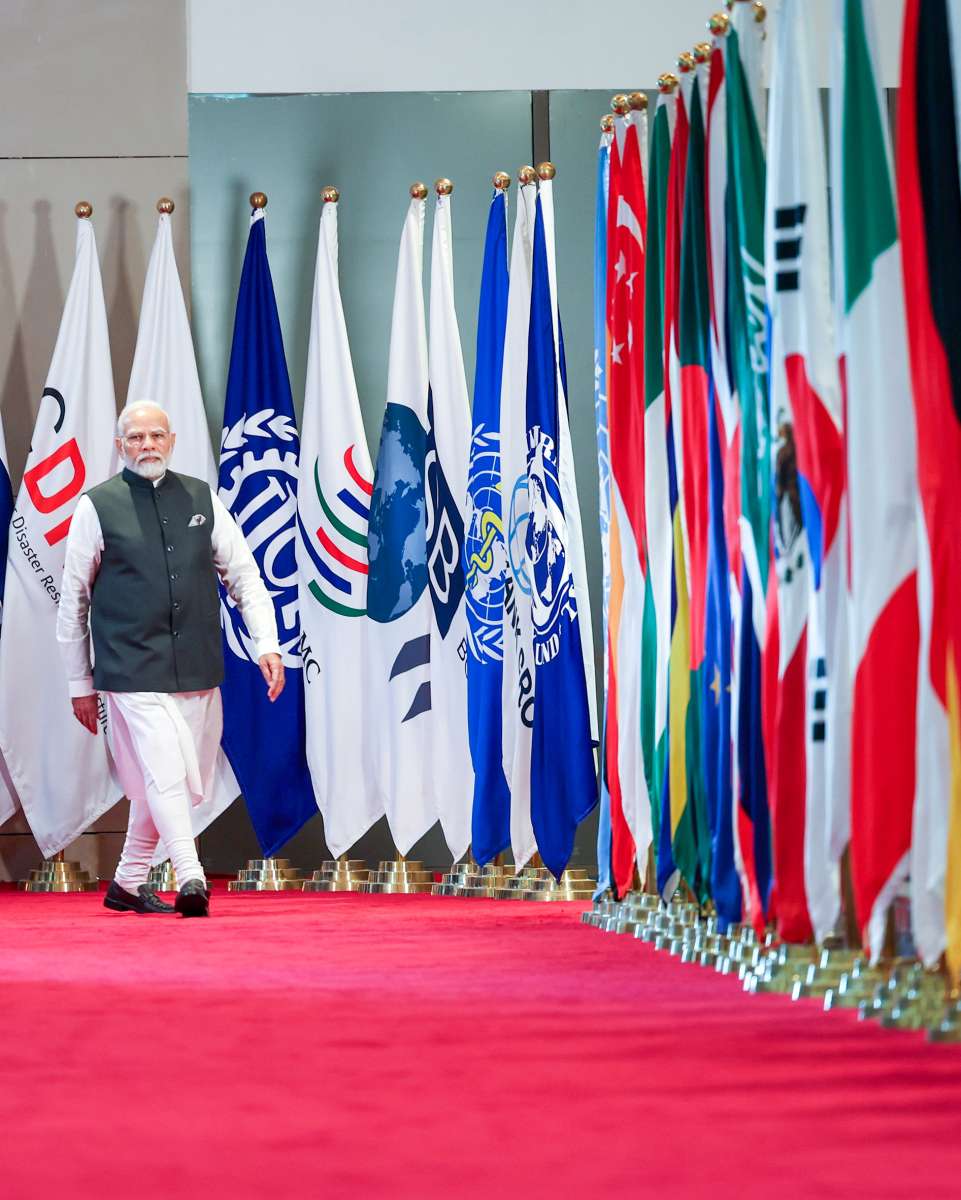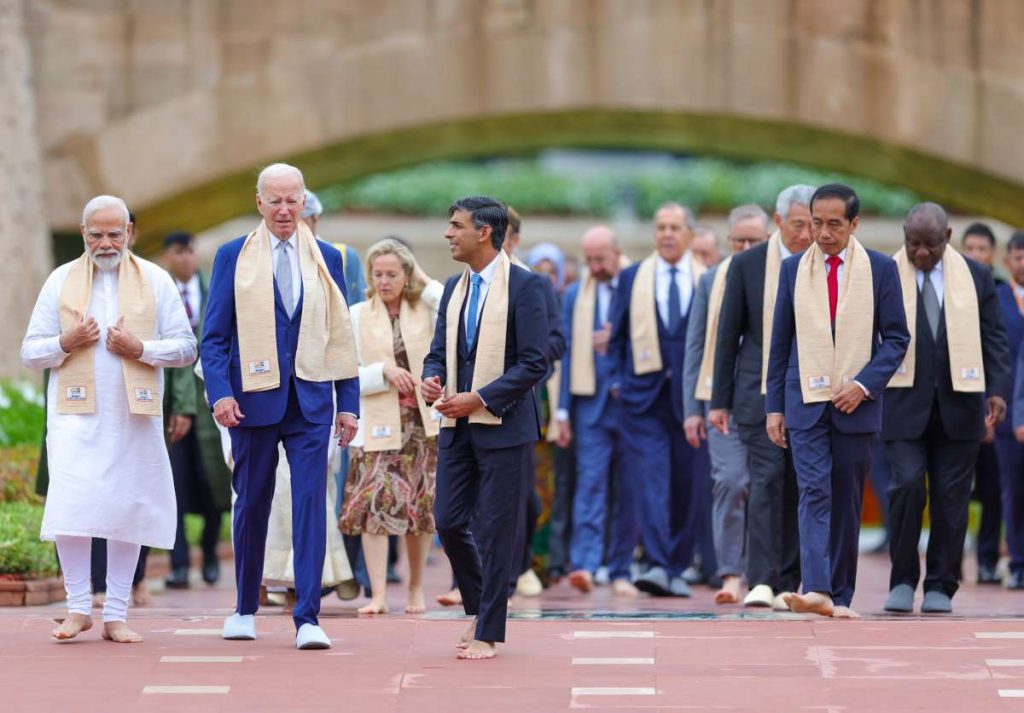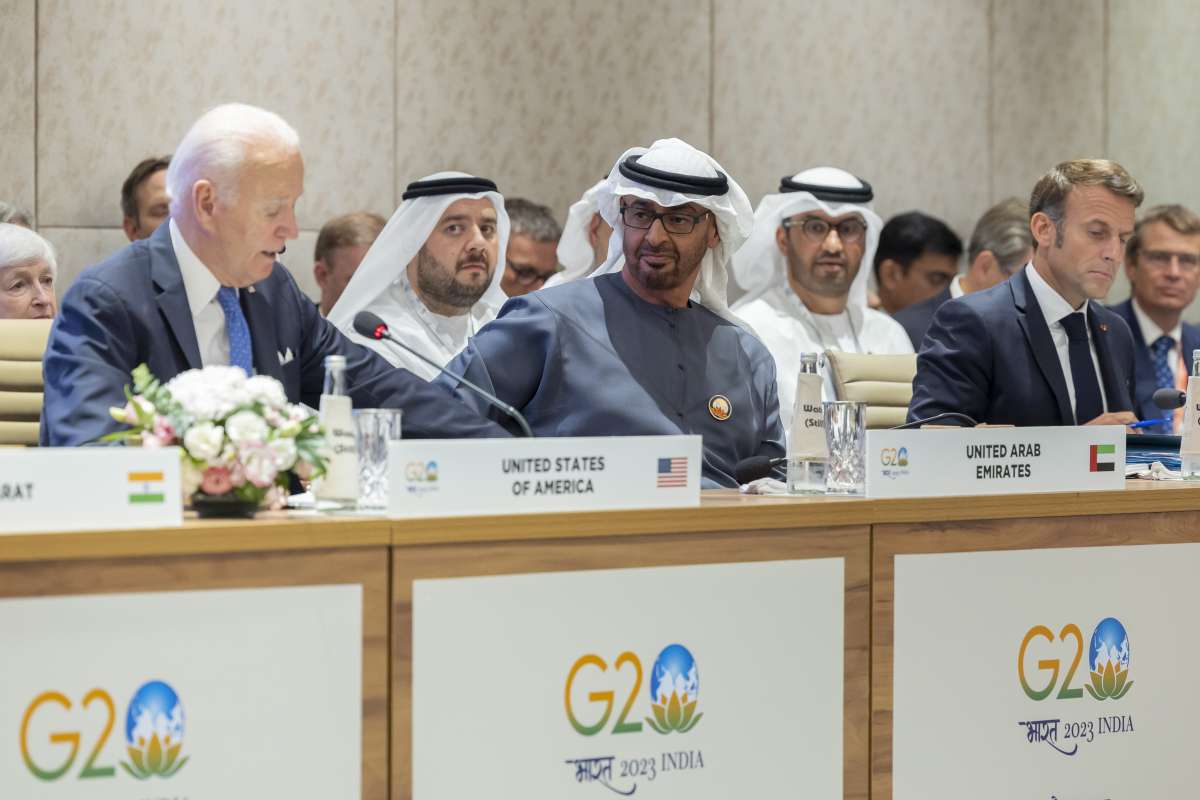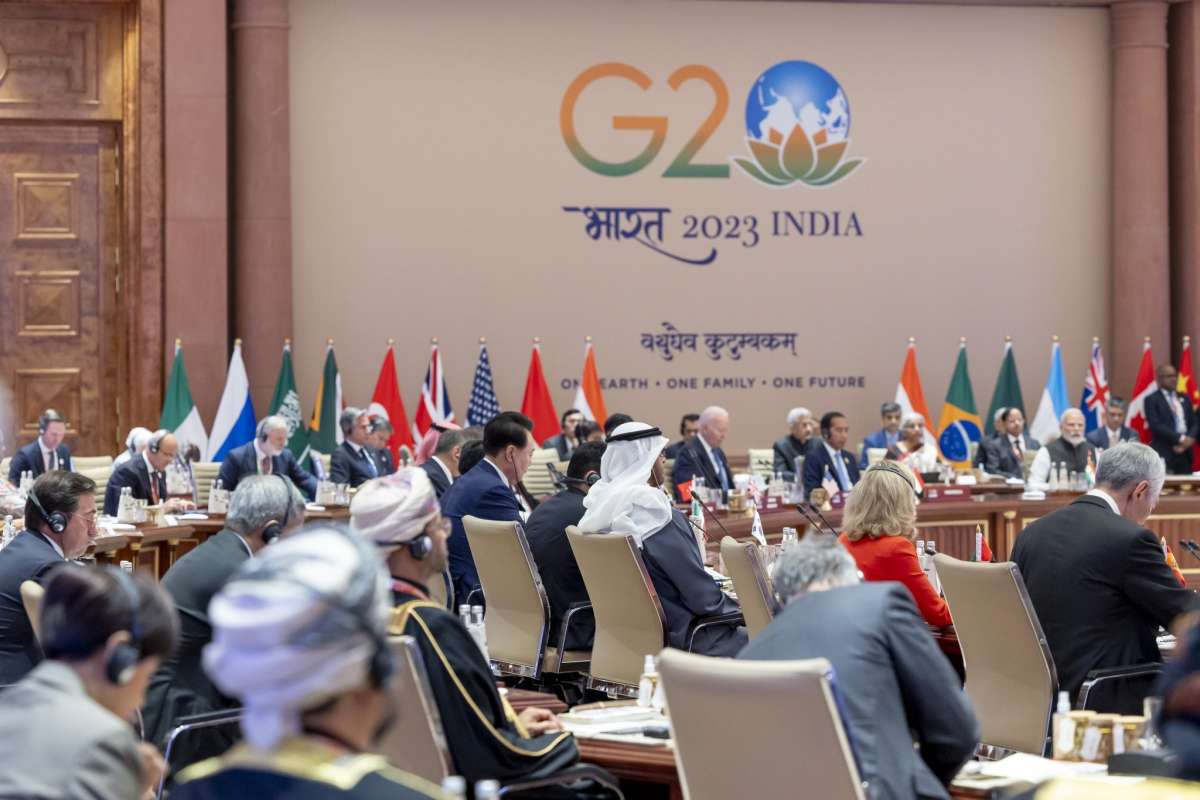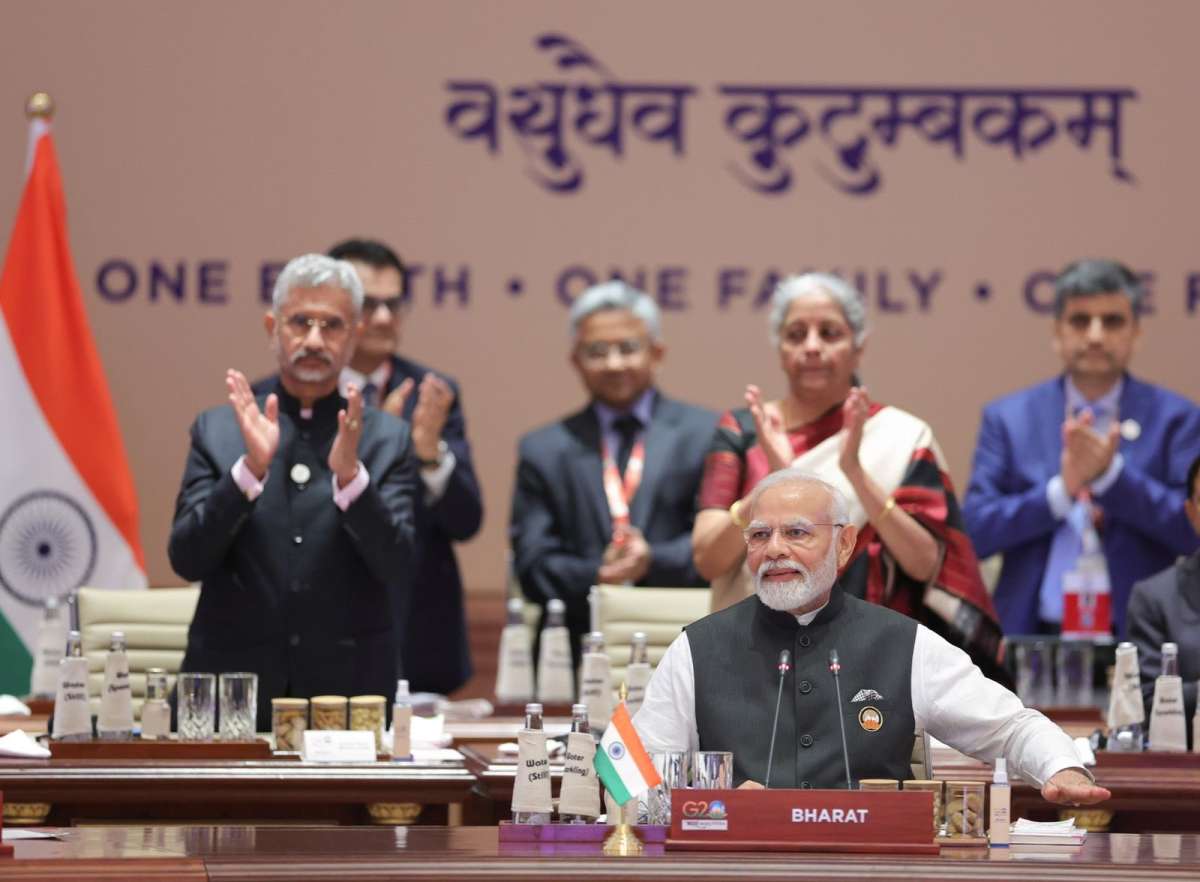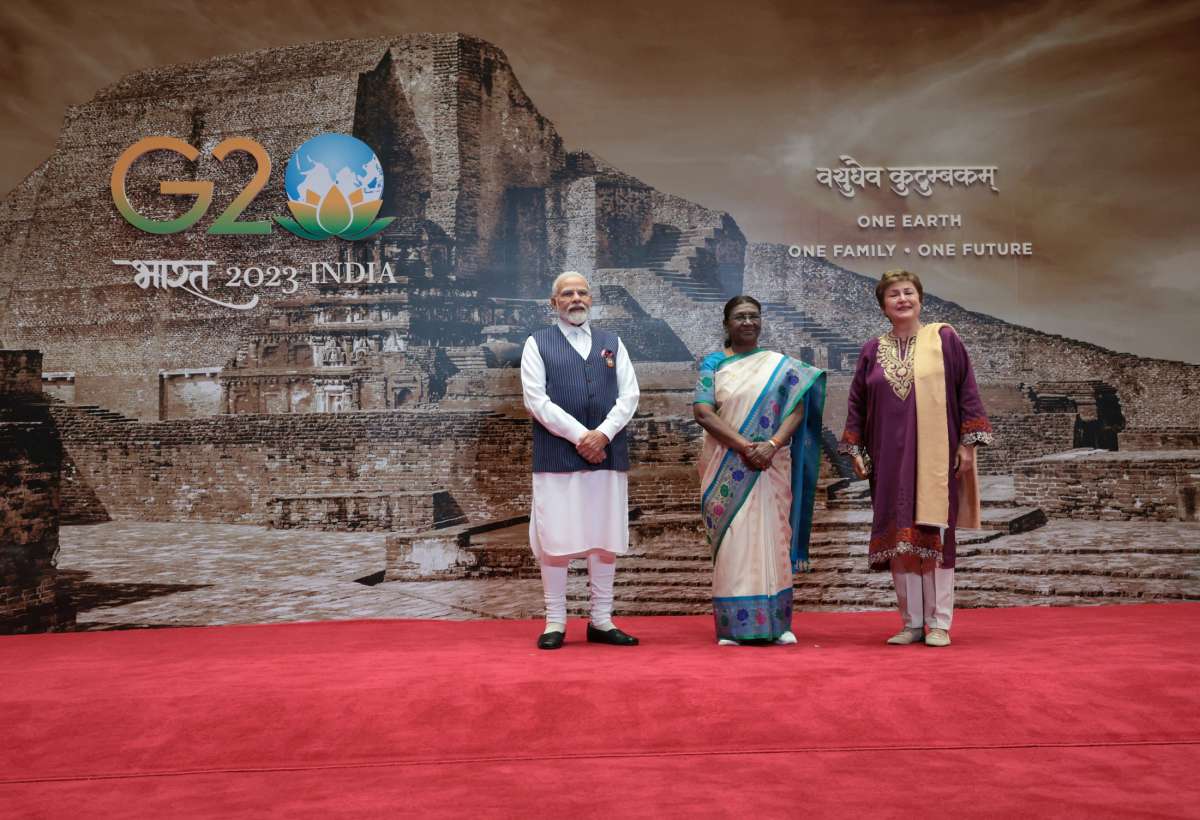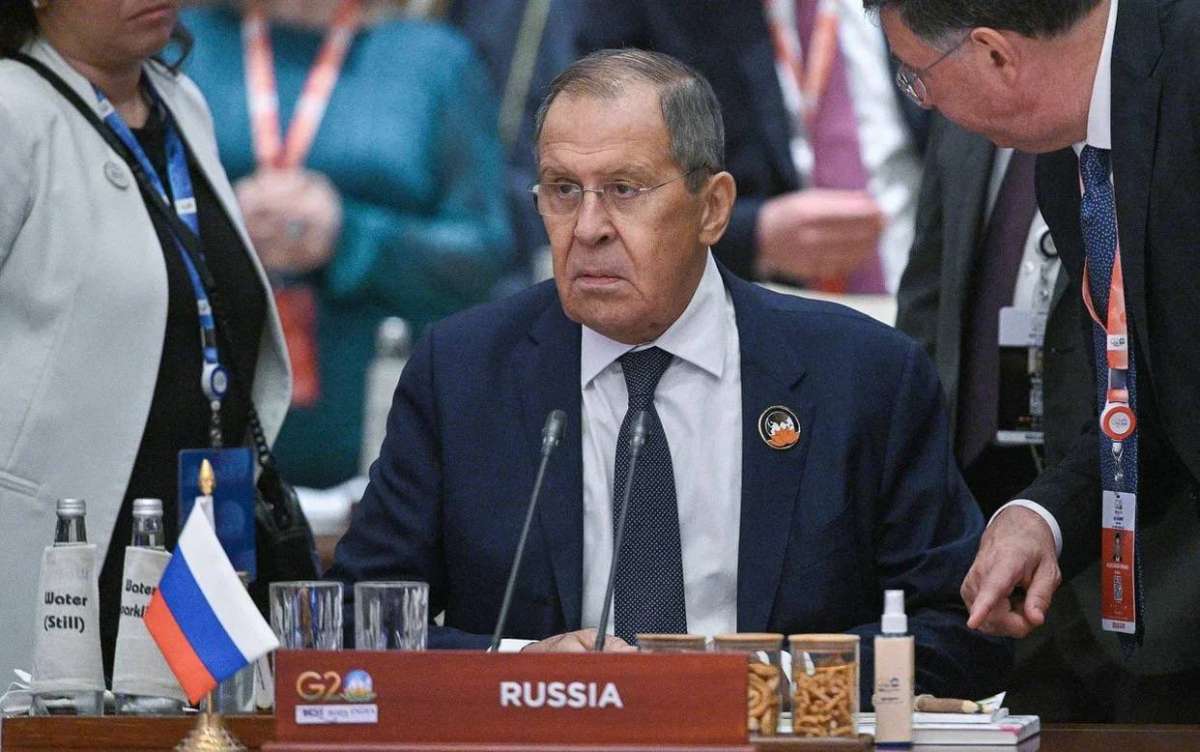The country also attended all Sherba and working group meetings, which reflects its commitment to contributing effectively to the G20 process…reports Asian Lite News
The UAE’s successful participation in the 18th G20 Summit has spotlighted the country’s global stature and its efforts to drive global action to ensure a brighter tomorrow for generations to come, crowning the UAE’s active efforts in the G20 summit, working groups and meetings.
Participating for the second time in a row, marking its fourth time as a guest of honour of the summit, the UAE has enhanced its status as a positive force across various fields, as part of its drive to promote stability and peace worldwide and mobilise global efforts to address shared challenges.
The country’s participation in the summit’s agenda included a declaration to establish an Economic Corridor linking India to the Middle East and Europe.
The UAE’s presence at the summit affirms its role in supporting and promoting global trade thanks to its top-grade networks with seaports and its investment over decades in building massive ports that enable it to support and streamline global trade activities.
The UAE played a part in the launch of the Global Biofuel Alliance on 9th September, 2023, on the sidelines of the G20 Summit. The alliance seeks to accelerate global efforts to achieve net-zero goals by facilitating trade in biofuels derived from natural sources.
During India’s presidency of the G20, the UAE participated in about 25 meetings held throughout the year within the various tracks.
The country also attended all Sherba and working group meetings, which reflects its commitment to contributing effectively to the G20 process.
The UAE enjoys a leading strategic position due to its close relations with various countries, helping support the global agenda and build partnerships to achieve global stability and prosperity, cementing the country’s status as a key pillar of the world’s top international alliances.
In addition to the UAE’s global strategic role, the country will welcome the world to the Climate Change Conference of the Parties (COP28), which will take place between November and December.
UAE-hosted WTO Ministerial
The G20 Leaders’ Summit in New Delhi has made a commitment to ensure the success of the World Trade Organisation’s 13th Ministerial Conference, which the UAE will host next year.
“We commit to work constructively to ensure positive outcomes at the WTO’s Thirteenth Ministerial Conference (MC13),” said the New Delhi Declaration adopted by the G20 Summit.
The foremost deliberation body of the WTO, which meets once every two years, will be coming to Abu Dhabi in February 2024, placing the UAE at the heart of the conversations that will shape the immediate future of global trade.
164 countries to gather in Abu Dhabi
The UAE will welcome the leadership of the WTO’s 164 member states to the MC13 in Abu Dhabi, just after hosting the COP28, the UN Climate Conference in Dubai in November this year with the participation of all UN member states, international organisations, and other global stakeholders. COP28 has made a landmark decision to include trade as a thematic day at the Dubai conference.
The previous WTO conference, MC12, reached landmark multinational agreements on issues such as pandemic preparedness, intellectual property rights, the removal of food export prohibitions and fisheries subsidies, in what has become known as “The Geneva Package”. MC13 is now the opportunity to finally introduce impactful reform to the WTO itself – and usher in a new wave of measures that will safeguard the future of the body as a credible custodian of the multilateral trading system.
MC13 comes at a critical time for world trade, and the conference will build on the outcomes of MC12, review the performance of the multilateral trading system, make decisions on the future work of the WTO, and set up the roadmap for MC14.
The General Council of the WTO recently elected Dr. Thani bin Ahmed Al Zeyoudi, Minister of State for Foreign Trade, as Chair of the MC13.
G20 reiterates inclusive WTO
The declaration reaffirmed that a rules-based, non-discriminatory, fair, open, inclusive, equitable, sustainable and transparent multilateral trading system, with WTO at its core, is indispensable.
“We will support policies that enable trade and investment to serve as an engine of growth and prosperity for all.”
The declaration renewed the G20’s commitment to ensure a level-playing field and fair competition by discouraging protectionism and market distorting practices, to foster a favourable trade and investment environment for all.
“We reiterate the need to pursue WTO reform to improve all its functions through an inclusive member-driven process and remain committed to conducting discussions with a view to having a fully and well-functioning dispute settlement system accessible to all members by 2024.”
MC13 to address hunger, food security
A top WTO official said last week that MC13 in Abu Dhabi will provide a unique opportunity to ensure that trade contributes to strengthening global food security.
WTO’s Deputy Director-General Jean-Marie Paugam noted MC13 can be a defining moment for a more food secure and sustainable future and urged WTO members to work together to overcome the stalemate in agriculture negotiations.
ALSO READ-G20 Participants Back UAE’s Climate Leadership

